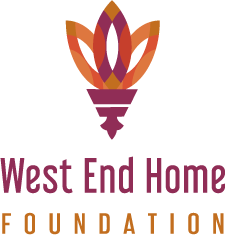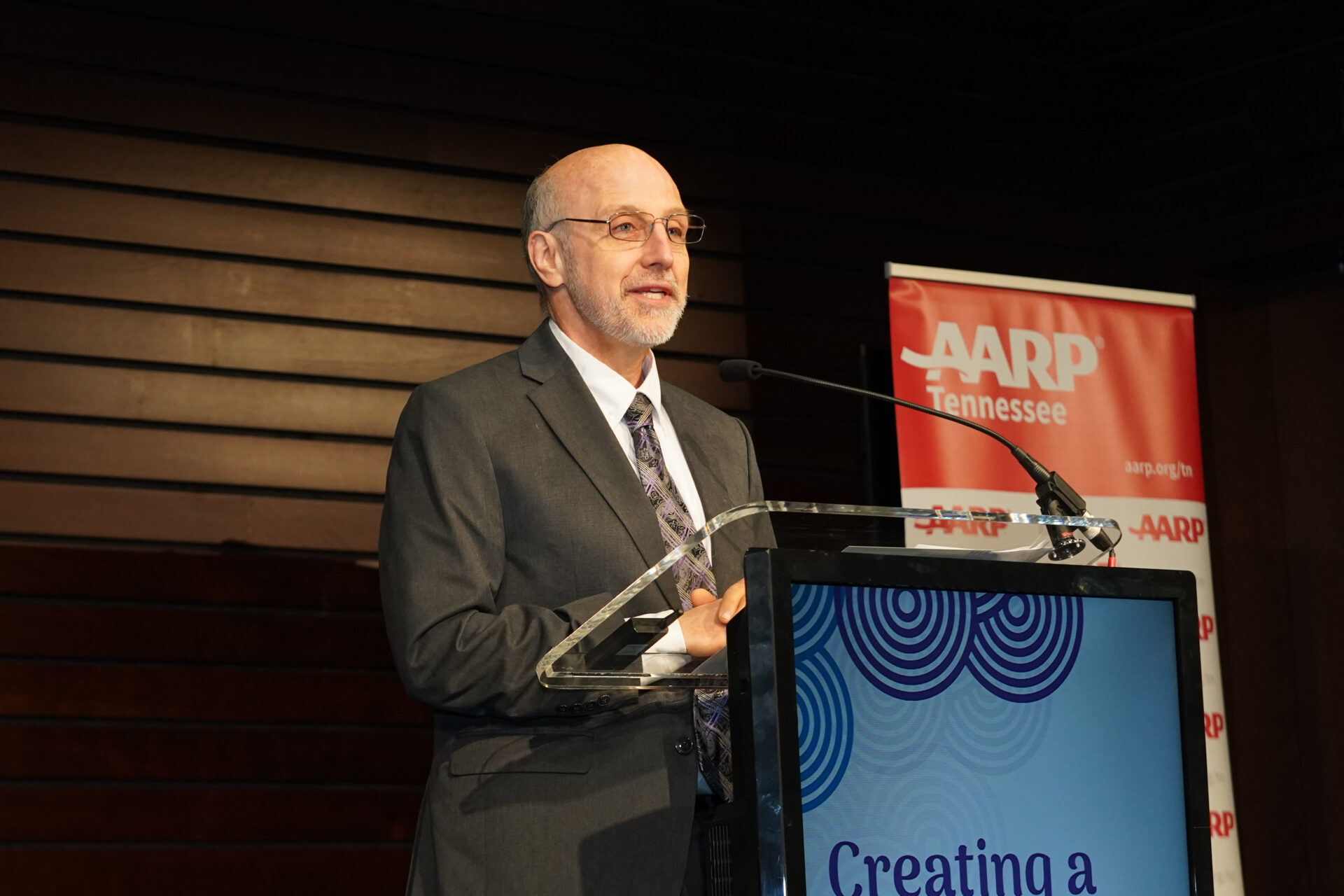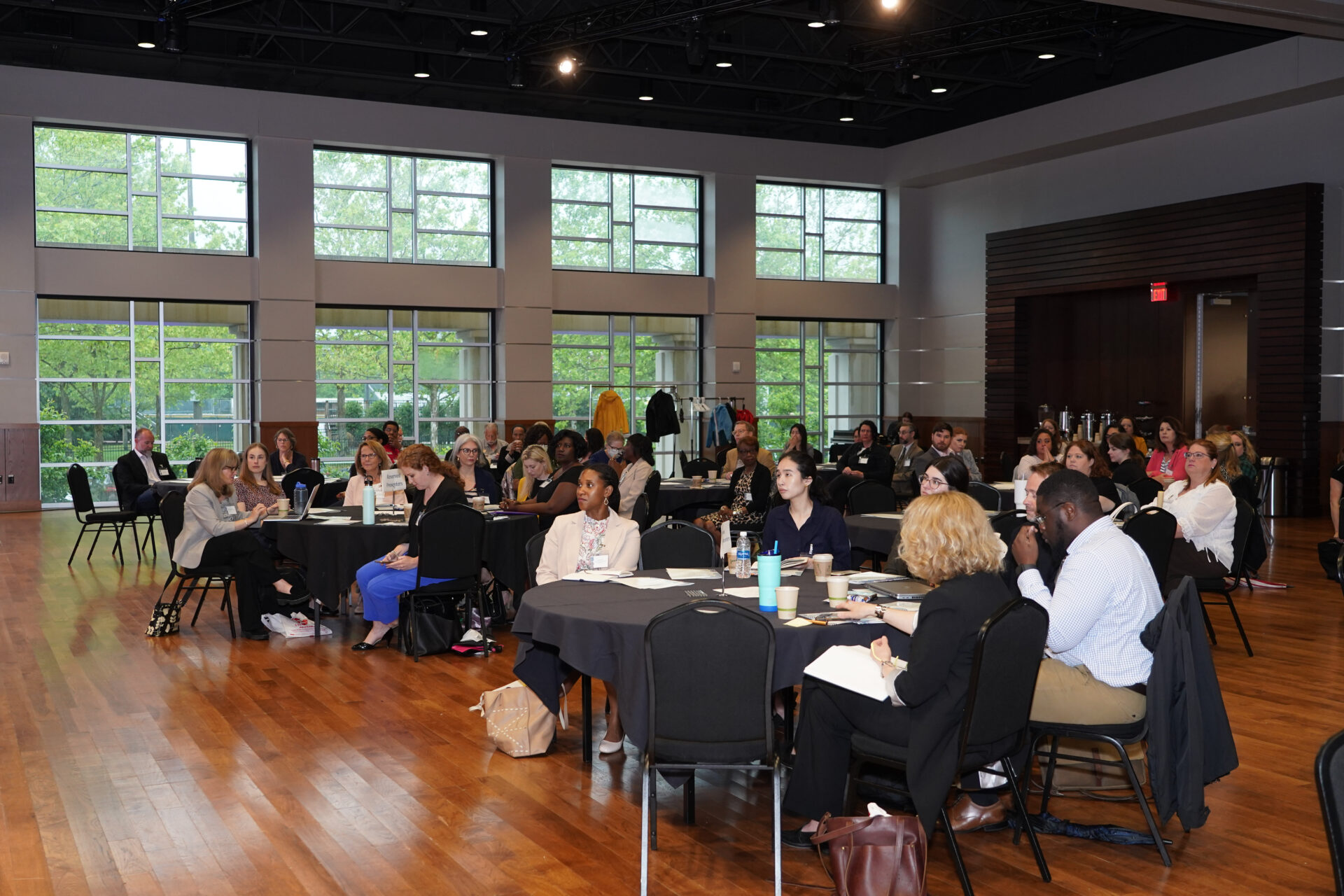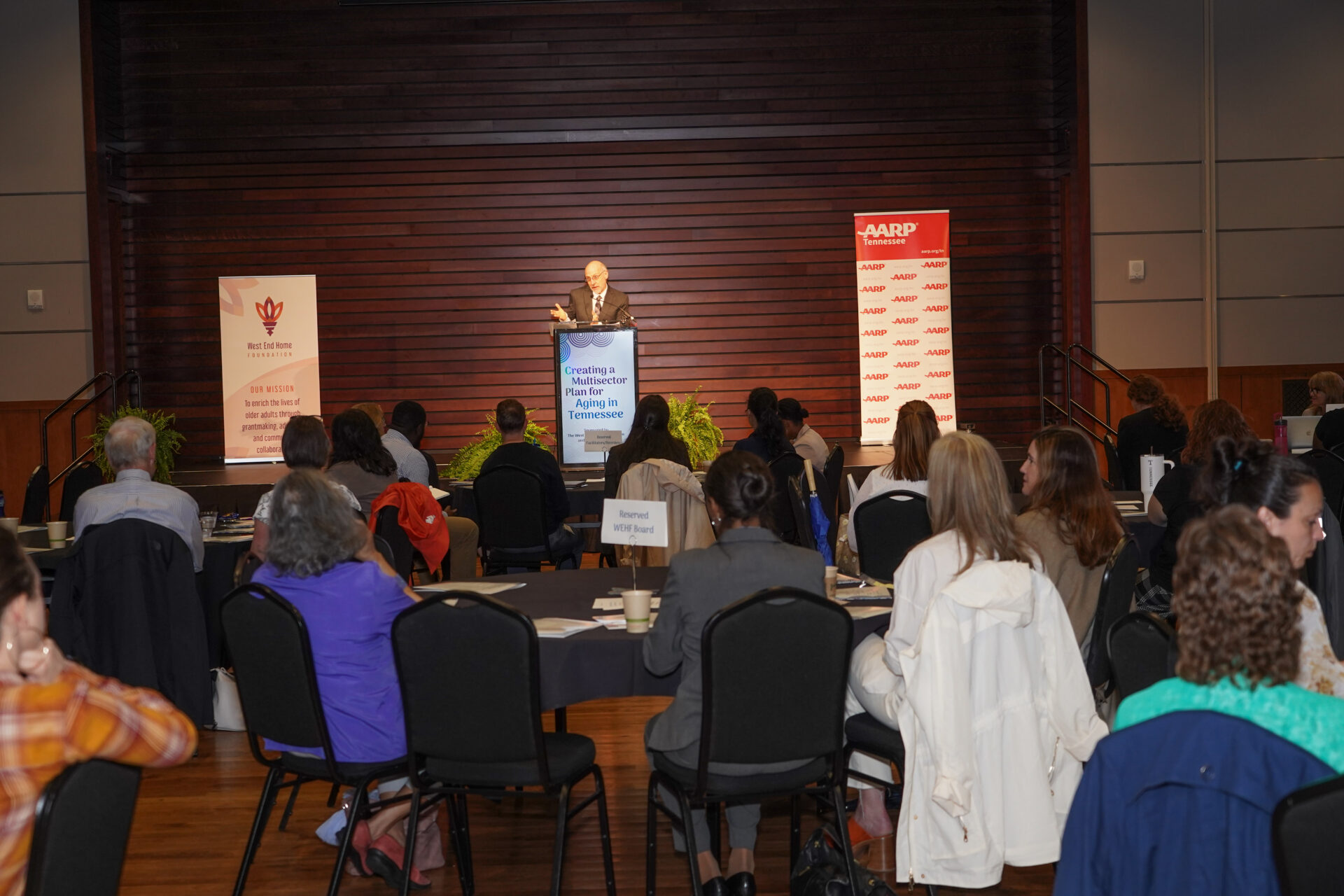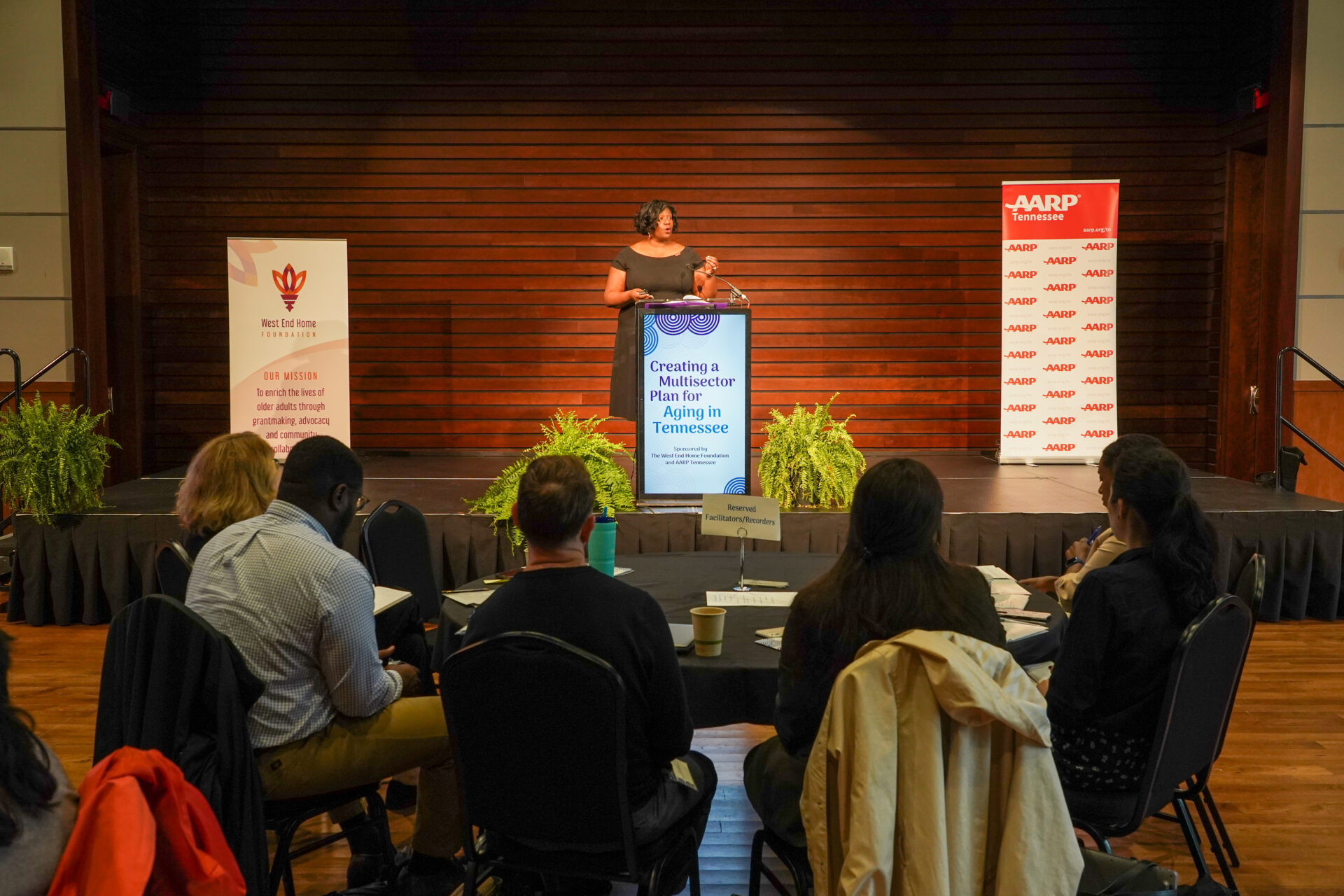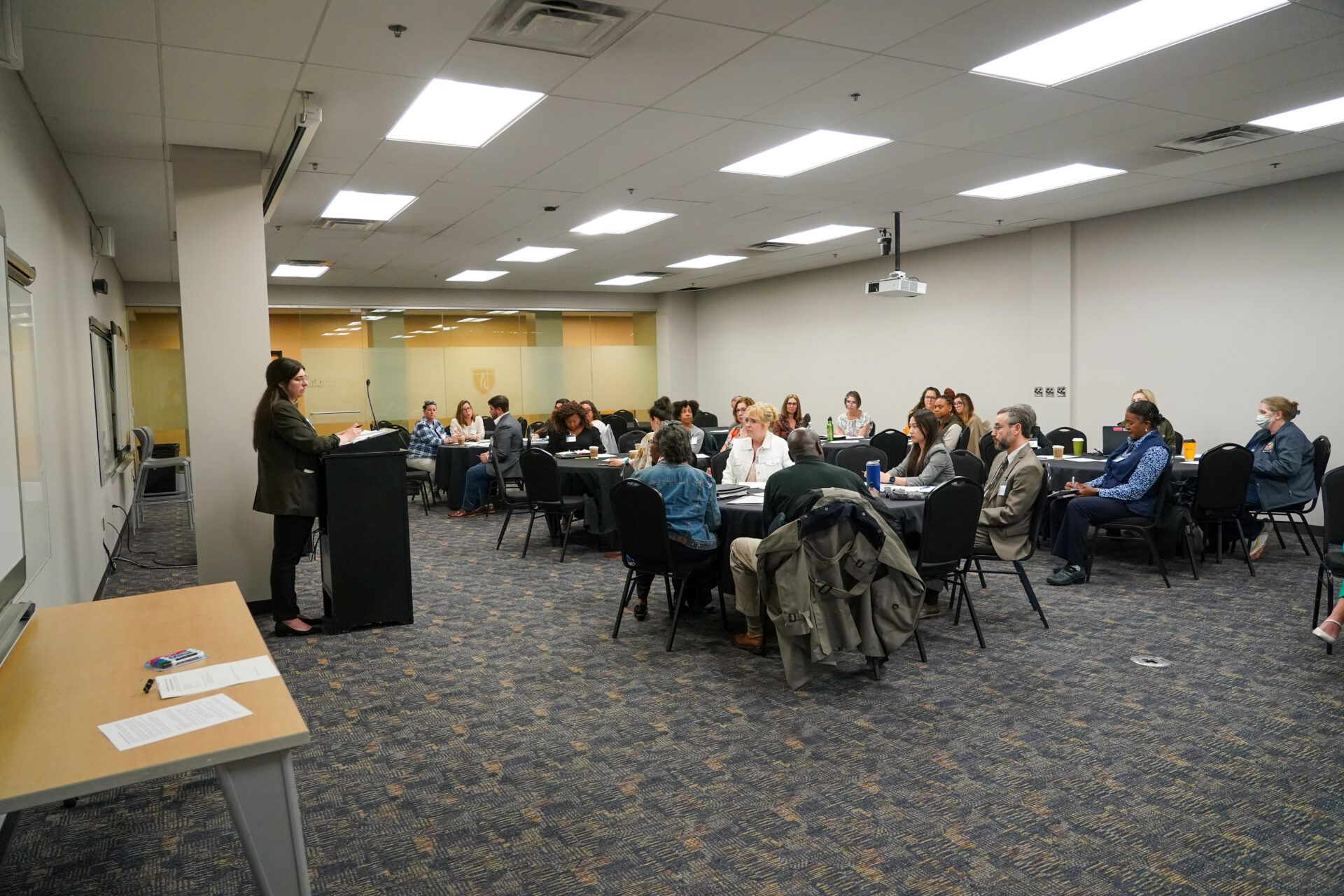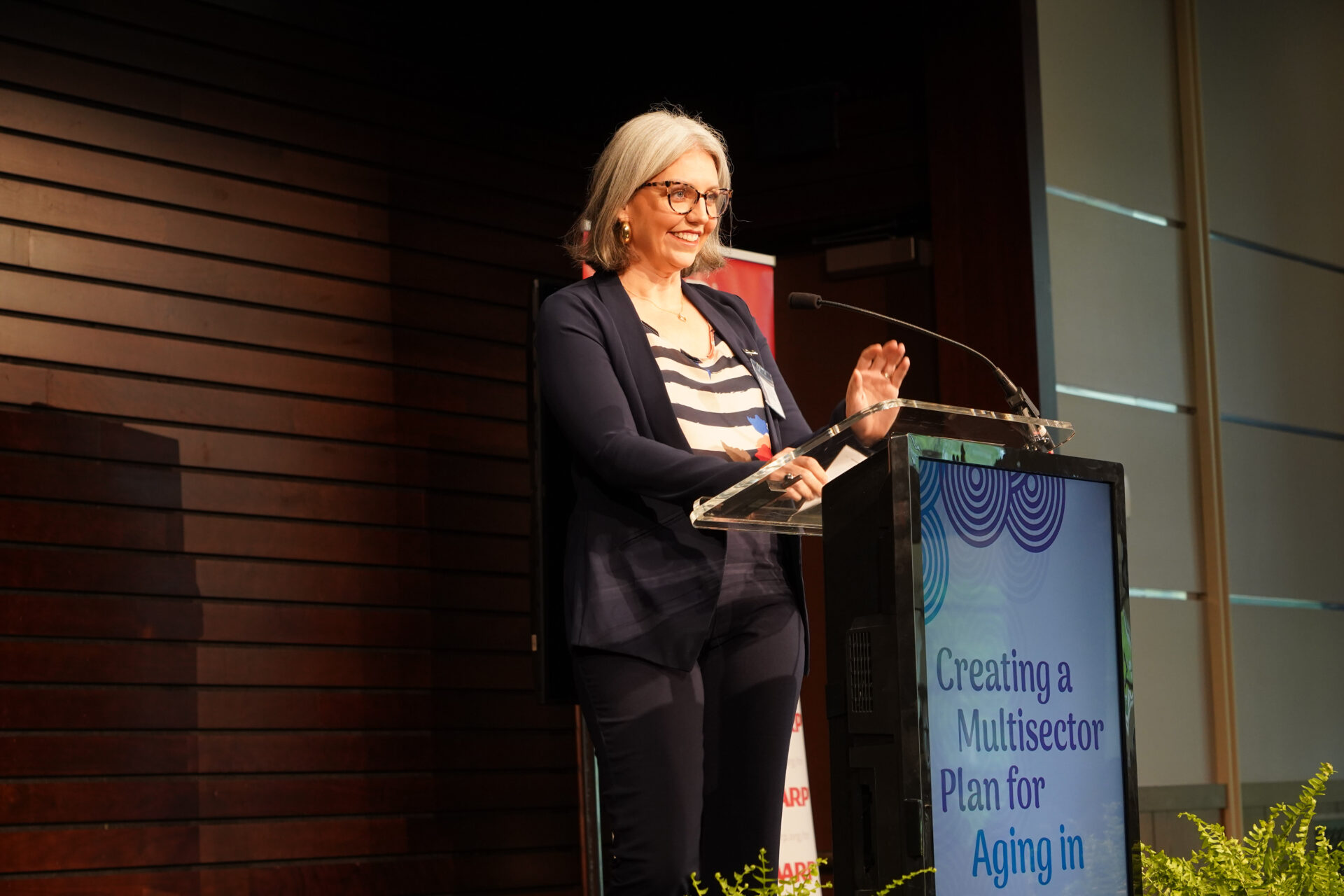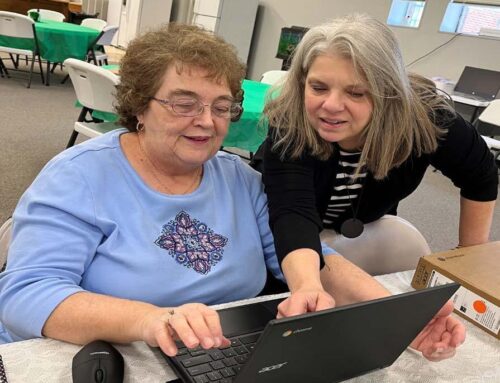Multisector Plans for Aging (MPAs) are transforming systems of care in many states across the country. Tennessee is one of ten states participating in a National Learning Collaborative to lay the groundwork for creating a Multisector Plan for Aging for our state. On Friday, May 12, 2023, The West End Home Foundation and AARP Tennessee hosted a Symposium bringing together a diverse group of community members to learn about the structure of these plans, their impact in other states, and the status of the multisector planning process in Tennessee.
Currently 1.7 million Tennesseans are 60 and older. The 2022 Community Needs Evaluation for Davidson County conducted by Metropolitan Social Services Strategic Planning and Research Department reported that “one in every seven Nashville residents is age 65 or older.” By 2034, the U.S. Census Bureau predicts there will be more people over the age of sixty-five in the United States than under the age of eighteen. The population projections in Tennessee follow the national and global trends, with the 60+ population being the fastest growing demographic in the state. The older adult population will continue to grow and is projected to double by 2050. America’s Health Ranking 2022 Senior Report, ranked Tennessee the 12th worst state for older adults overall. Similarly, Tennessee’s rankings were among the worst for support of family caregivers, community support for older adults, healthcare, and early death rate among older adults. Now more than ever before, it is critical to create an infrastructure of supportive services and resources that adequately addresses the needs of older adults, their caregivers, and their families. Creating a Multisector Plan for Aging (MPA) is one of the ways that states are addressing the growing needs of their older residents.
Gathered at Lipscomb University’s George Shinn Center, the morning started with remarks by Dianne Oliver, Executive Director at The West End Home Foundation. Dianne welcomed attendees and emphasized the importance of prioritizing policies and programs that positively impact older adults and their families. The West End Home Foundation works to enrich the lives of older adults through grantmaking, advocacy, and community collaboration. The development of a Multisector Plan for Aging in our state could improve access to resources and quality of life for older Tennesseans. The West End Home Foundation believes a MPA is one piece of a larger puzzle that builds a community where all Tennesseans can thrive across the lifespan.
Next, Dr. Jim Jones, Chief Medical Officer at the Tennessee Department of Health shared the State Health Department’s commitment to Healthy Aging across all of its programs and initiatives. Healthy Aging involves meeting a person’s physical, emotional, cognitive health and social needs over the course of their entire life. All of these aspects of Healthy Aging are important to maintaining vitality and independence as we age. The State Health Department’s work toward these efforts will be an important component of a successful Multisector Plan for Aging in Tennessee and Dr. Jones pledged the support of the Health Department in the development of the plan moving forward.
Following the encouraging state level overview from Dr. Jones, the program turned to a national perspective of the Multisector Plans for Aging movement. In partnership with The SCAN Foundation, West Health, and the May & Stanley Smith Charitable Trust, the Center for Health Care Strategies (CHCS) launched a multi-state learning collaborative to advance MPAs in 2022. Tennessee was one of ten states chosen to participate in the 12 month cohort. Dr. Carrie Graham and Amy Hoffmaster, both from CHCS, gave participants an overview of what a Multisector Plan for Aging is and shared examples of what a plan could look like. At its core, a MPA is cross sector, reflects meaningful stakeholder engagement, identifies common goals, is evidence based, and addresses both short and long term priorities. The states around the country that have MPAs in place have seen numerous benefits including promoting communication, education, and collaboration across diverse sectors and industries. MPAs also raise awareness among policymakers and the general public about how aging and disability-related policy impacts people across all stages of life. A Multisector Plan for Aging establishes statewide priorities and encourages all sectors to consider how an aging and disability lens can impact service delivery. Dr. Graham and Amy emphasized that developing a MPA is a journey, one that often takes one to two years. A successful MPA will provide a long-term framework for the state’s priorities, guide the public and private sector toward a framework that prioritizes aging with dignity, and most of all is a living document with stakeholder buy-in and accountability.
One goal of a Multisector Plan for Aging is to highlight the work that is already happening and working well toward supporting the needs of older adults and their families. Mia McNeil, State Director of AARP Tennessee, shared how AARP is working to help cities and communities across the state become Age-Friendly and Livable Communities. AARP defines an Age-Friendly community as “one that is safe and secure, has affordable and appropriate housing and transportation options, and offers supportive community features and services. Once in place, those resources enhance personal independence; allow residents to age in place; and fosters residents’ engagement in the community’s civic, economic, and social life.” (AARP Policy Book, Chapter 9). Mia reinforced the notion that what is good for older adults is good for everyone when she shared that AARP polling has seen similar preferences across the age spectrum in the desire to have public transportation options, have walkable communities, access affordable housing, access the supportive services they need, and live safely and comfortably in their communities. Tennessee currently has 13 Age-Friendly communities and is hopefully on the way to becoming an Age-Friendly state. AARP’s diligence in expanding the network of Age-Friendly communities will enhance Tennessee’s ability to serve its residents well across the lifespan.
Continuing with the local perspective, Katie Evans, Chief of Long-term Services and Supports at TennCare, gave participants an overview of Tennessee’s progress in its Multisector Plan for Aging development. The Learning Collaborative Task force for Tennessee includes The Governor’s Administration, TN Department of Health, TN Department of Intellectual and Developmental Disabilities, TennCare, AARP TN, and the Area Agencies on Aging and Disability. Over the past year, the task force has developed an initial framework for Tennessee’s MPA and has begun building broad support for the plan. An initial survey of local stakeholders recommended five broad goals to help frame Tennessee’s plan. Those five broad goals are:
1) Health and Healthcare– Older Tennesseans will stay healthier longer through access to affordable person-centered healthcare and support, including access to medical care and social services to promote active and independent living.
2) Caregiving (informal and formal) – Tennessee will continue to support workforce development efforts to address challenges for the direct care workforce in the state. Additionally, Tennessee’s older adults, their families, and caregivers will be more secure and better prepared to meet the challenges of aging.
3) Community Choice – Tennessee’s older adults will be able to age in place, contribute to, and fully participate in the community of their choosing for as long as possible.
4) Employment, volunteerism, and community engagement – Tennesseans will be active participants in the labor force, engage in volunteerism and the community at large as long as they want or need.
5) Security and Protection – Tennessee will empower and protect older adults and their caregivers from scams, fraud, abuse, neglect, and exploitation through public awareness, services, education, and training.
Community engagement including listening sessions, public meetings, and surveys are an important part of the development process and the main reason we were gathered at the Symposium. After a national overview about MPAs and an update about local progress, participants had the opportunity to attend two breakout sessions around the five broad goal recommendations for Tennessee’s MPA. Participants were given a chance to give feedback about the goal definition as well as the subtopics. The breakout discussions also encouraged attendees to share about programs that were working well, programs not currently working well, and any gaps in service availability in each broad goal area. Notes were taken to capture any changes, suggestions, and constructive criticisms that were given. All feedback will be compiled and taken into consideration as the task force continues to build out the plan with stakeholder feedback.
After the breakout sessions, participants reconvened over lunch to hear a broad overview of the feedback from each session and learn about next steps. The breakout session report-out was led by Anna Lea Cothron, System Transformation Director at TennCare and lead member of the Learning Collaborative Task Force. Anna Lea also shared that the Task Force partnered with East Tennessee State University Center for Rural Health to produce a data dashboard that will include age-related and rural metrics at both the state and county levels. The Data Dashboard will be available soon and will hopefully inform future policy decisions that impact the State’s older population. The next step is to continue to build support for the plan throughout the state. Tennessee’s MPA should reflect input and priorities from a diverse community, including people of all ages and abilities. The Symposium was the first of many opportunities to gather input and feedback from diverse stakeholders. The task force plans to convene listening sessions and public engagement opportunities throughout the state so that all Tennesseans have the opportunity to share feedback about the plan’s goals.
The West End Home Foundation has pledged its support in Tennessee’s effort to create a Multisector Plan for Aging and encourages other foundations to do the same. The philanthropic sector has played a unique role in supporting the work of MPAs nationwide by serving as a convener and advocate. It will take the support of all sectors and industries – both public and private – to make a MPA successful. The West End Home Foundation was honored to host the Symposium with AARP Tennessee and we look forward to all the good work that is to come in developing a Multisector Plan for Aging in Tennessee. The feedback from Symposium attendees was invaluable and it will help Tennessee’s plan become more comprehensive and inclusive. The West End Home Foundation envisions a world where all older adults are valued, have opportunities to be engaged in their communities in meaningful ways, and have access to high quality services that promote successful aging. The development of a Multisector Plan for Aging in Tennessee has the potential to support this vision for older adults and all residents across the life span.
